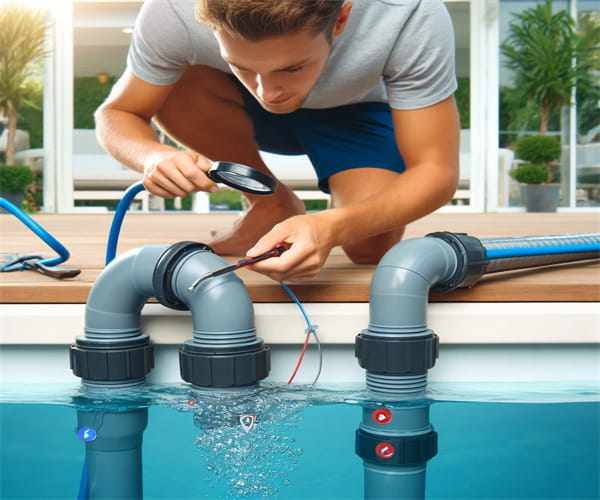When summer rolls around, there’s nothing better than diving into a crystal-clear pool to beat the heat. However, nothing can disrupt your peaceful swim more than an excessively noisy pool sand filter. Understanding why your pool sand filter is so loud and how to fix it is crucial for maintaining a serene backyard oasis. This article will walk you through common causes and solutions to keep your filter running quietly and efficiently.

1. Check the Pump and Motor
- Vibration: If the pump and motor aren’t securely mounted, they can vibrate, creating a racket. Over time, the vibrations can loosen bolts and screws, making the noise worse. To fix this, inspect all the mounting bolts and screws, and tighten any that are loose. You might also want to add rubber padding under the pump to absorb vibrations and reduce noise.
- Bearings: Bearings in the motor can wear out over time, leading to a loud, grinding noise. This typically sounds like a high-pitched whine or a mechanical grinding. If you suspect the bearings are the issue, you’ll need to disassemble the motor to check them. Worn bearings will feel rough or gritty when turned by hand. Replacing motor bearings is often a job for a professional, as it requires specific tools and expertise.
2. Check the Plumbing
- Cavitation: Cavitation occurs when the pump draws in air instead of water, creating a loud noise. This can sound like rocks grinding in the pump. Check for leaks in the suction line by running water over the connections and watching for bubbles. Ensure the pool’s water level is high enough to cover the skimmer openings and prevent air from being drawn into the system. If leaks are found, reseal the connections with Teflon tape or pipe sealant.
- Valves and Fittings: Ensure all valves and fittings are properly adjusted and not restricting water flow. Partially closed valves can cause turbulent water flow, leading to noise. Open all valves fully to ensure smooth water flow. If noise persists, check for any worn or damaged fittings and replace them if necessary.

3. Filter Media Issues
- Sand Condition: Over the years, the sand in the filter can wear out or become clogged, causing noise. Inspect the sand and replace it if it appears compacted or dirty. Generally, pool filter sand should be replaced every 3-5 years for optimal performance.
4. Pump Location and Environment
- Isolation: The surroundings can amplify the noise of your pump and filter. Placing the pump on a vibration-absorbing pad can help minimize noise. Additionally, ensure the pump isn’t located in an enclosed space that can echo the sound. Consider moving the pump to an open area where noise can dissipate more easily.
- Soundproofing: Consider adding soundproofing materials around the pump and filter area. This can include building a soundproof enclosure or adding dense landscaping to absorb the noise. Be sure to allow for proper ventilation to prevent overheating. Materials like acoustic panels or foam can be effective in reducing noise levels.
5. Professional Inspection
- If you’ve tried all of the above steps and the noise persists, it might be time to call in a professional. A professional pool technician can perform a thorough inspection of your pool system. They can identify any underlying issues that might not be immediately apparent, such as internal pump damage or complex plumbing issues. Professionals have specialized tools and expertise to diagnose and fix problems efficiently. Scheduling regular maintenance checks can also help prevent future noise issues and extend the life of your pool equipment.
Conclusion
By following the steps above, you can troubleshoot and resolve common noise issues to ensure your pool remains a relaxing and fun place. Addressing these issues will not only keep your pool sand filter quiet, but it will also help extend the life of the unit. Regular maintenance and timely intervention can prevent minor problems from turning into expensive repairs. So the next time you hear your pool sand filter making a louder noise than usual, refer to this guide and take the necessary steps to restore calm to your poolside paradise.